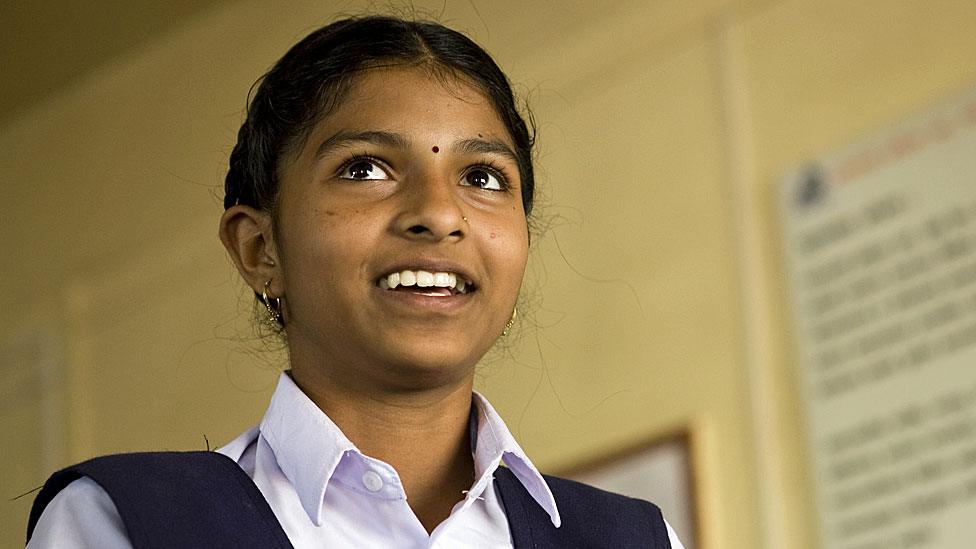Girls' education 'smartest' post-Covid investment, says PM
- Published

There are fears girls in poorer countries could lose out as schools return after the pandemic
Boris Johnson is urging world leaders to back plans to get 40 million more girls in developing countries in school, calling it "one of the smartest investments we can make".
He is taking part in a video link-up with schoolchildren in Kenya to promote access to education for girls.
This is a focus of the UK's presidency of the G7 group of leading economies.
But aid agencies have warned of the negative impact of the UK's international aid cuts.
The prime minister will announce an extra £55m for a global education project to share information on what works best in improving school systems, particularly in Kenya, Rwanda, Sierra Leone and Pakistan.
'Lost generation'
Since his time as foreign secretary, Mr Johnson has argued that widening access for education for girls is a highly-effective way of driving development in some of the world's poorest countries, in places where girls had often been at risk of missing out on school.
As well as getting 40 million more girls into school in low-income countries, the G7's target will be for 20 million more girls to be reading by the age of 10.
"Supporting girls to get 12 years of quality education is one of the smartest investments we can make as the world recovers from Covid-19. Otherwise we risk creating a lost pandemic generation," said Mr Johnson.
"Across the world there is a vast untapped resource - girls whose education has been cut short or denied altogether, who could be leading efforts to pull their communities out of poverty."
But the prime minister has faced criticism that such calls on the international community come alongside £4bn cuts in UK overseas aid.

The global summit aims to raise £3.6bn for education projects in poorer countries
The Centre for Global Development, based in the UK and US, published analysis estimating UK aid to education would be cut by 40%.
Analysis co-author, Pauline Rose, professor of international education at the University of Cambridge, called for greater additional funding for education, rather than making more commitments from shrinking aid budgets.
"If this does not happen, programmes that the UK directly supports, and which are successfully reaching the most disadvantaged girls, will be at risk, with potentially catastrophic consequences for the young people who depend on them," said Prof Rose.
'Deep cuts' to aid
The children's charity Plan International UK warned of "empty promises".
"Covid-19 has created the biggest education emergency of our lifetime and we know that in times of crisis girls are less likely than boys to return to school," said chief executive Rose Caldwell.
"They face a greater risk of early marriage, sexual exploitation, and early pregnancy, and for many the chance for an education will be lost forever."
Lis Wallace, of the aid charity One, said the extra support being announced was welcome, but it was "overshadowed by deep cuts to UK aid, which will have severe consequences".
The classroom link-up with Kenya will also include the president, Uhuru Kenyatta, with the UK and Kenya co-hosting a global education summit in July.
The summit hopes to raise over £3.6bn from donor countries over the next five years for the Global Partnership for Education, which co-ordinates international education funding.
A Downing Street spokeswoman said any UK contribution to this would be in addition to the £400m already promised to girls' education this year.
Julia Gillard, chair of the global partnership, is also taking part in the Kenyan classroom link-up with Mr Johnson.
"We are at a decisive junction. When the world builds back from the pandemic, ensuring that every girl and boy has the opportunity for a quality education is the single best investment we can make for a more sustainable, peaceful and resilient future," she said.